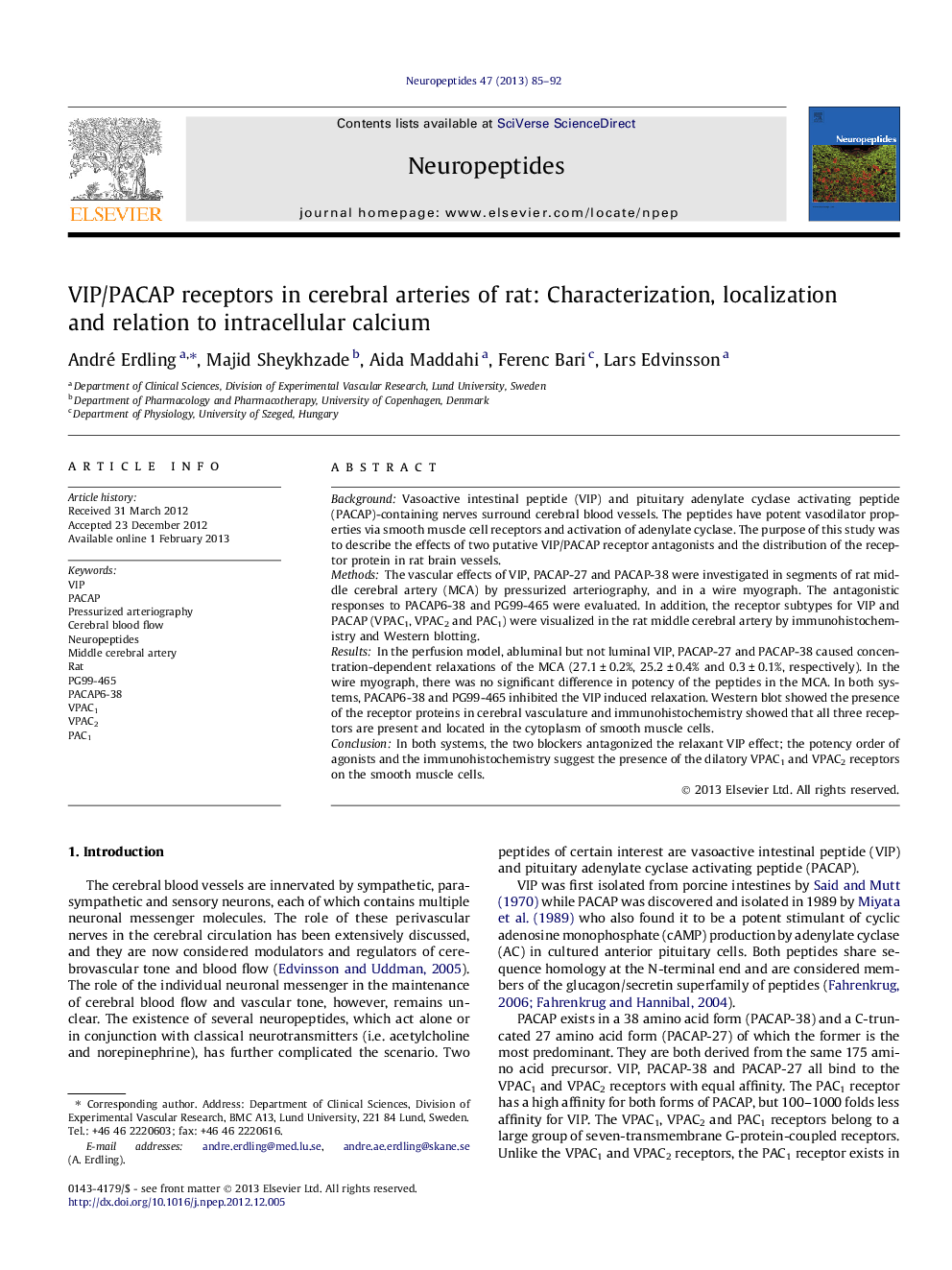| Article ID | Journal | Published Year | Pages | File Type |
|---|---|---|---|---|
| 2808128 | Neuropeptides | 2013 | 8 Pages |
BackgroundVasoactive intestinal peptide (VIP) and pituitary adenylate cyclase activating peptide (PACAP)-containing nerves surround cerebral blood vessels. The peptides have potent vasodilator properties via smooth muscle cell receptors and activation of adenylate cyclase. The purpose of this study was to describe the effects of two putative VIP/PACAP receptor antagonists and the distribution of the receptor protein in rat brain vessels.MethodsThe vascular effects of VIP, PACAP-27 and PACAP-38 were investigated in segments of rat middle cerebral artery (MCA) by pressurized arteriography, and in a wire myograph. The antagonistic responses to PACAP6-38 and PG99-465 were evaluated. In addition, the receptor subtypes for VIP and PACAP (VPAC1, VPAC2 and PAC1) were visualized in the rat middle cerebral artery by immunohistochemistry and Western blotting.ResultsIn the perfusion model, abluminal but not luminal VIP, PACAP-27 and PACAP-38 caused concentration-dependent relaxations of the MCA (27.1 ± 0.2%, 25.2 ± 0.4% and 0.3 ± 0.1%, respectively). In the wire myograph, there was no significant difference in potency of the peptides in the MCA. In both systems, PACAP6-38 and PG99-465 inhibited the VIP induced relaxation. Western blot showed the presence of the receptor proteins in cerebral vasculature and immunohistochemistry showed that all three receptors are present and located in the cytoplasm of smooth muscle cells.ConclusionIn both systems, the two blockers antagonized the relaxant VIP effect; the potency order of agonists and the immunohistochemistry suggest the presence of the dilatory VPAC1 and VPAC2 receptors on the smooth muscle cells.
